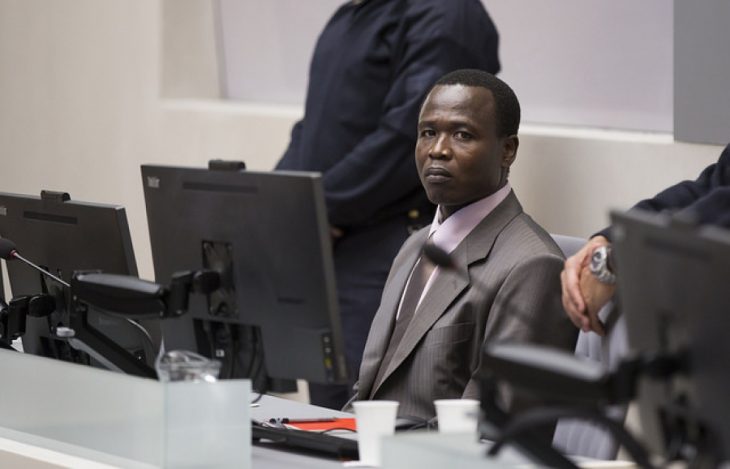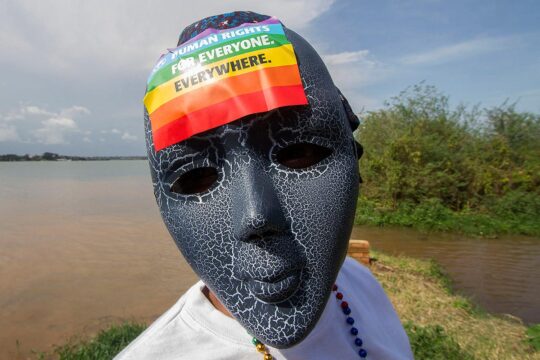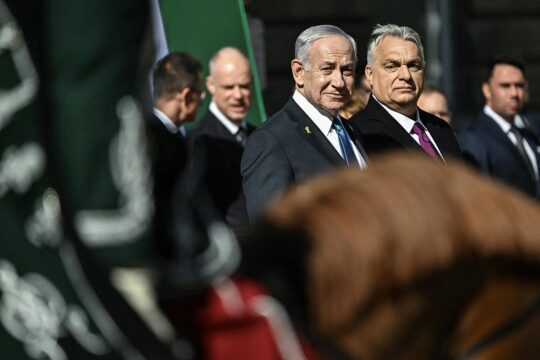Crimes of sexual violence will be a big focus in the upcoming trial of former Lord’s Resistance Army (LRA) commander Dominic Ongwen before the International Criminal Court (ICC), although they were not part of the initial case. These sexual and gender-based crimes, considered to be war crimes and/or crimes against humanity, figure large in the Prosecutor’s pre-trial brief, issued on September 6, three months before the scheduled start of trial.
Forced marriage, rape, torture, beating and other abuses were the daily lot of women in the Ugandan rebel Lord’s Resistance Army (LRA), especially in the Sinia brigade which was under Ongwen’s command, according to ICC Prosecutor Fatou Bensouda. “The regime of sexual abuse of girls and women in the LRA is one its defining features,” says the pre-trial brief. “Women were treated as spoils of war, awarded as prizes without any more say in the matter than if they had been animals or inanimate objects.”
Dominic Ongwen, now around 40, comes from Gulu in northern Uganda. He was captured by the LRA on his way to school when he was about 10, according to his family. As an adult he quickly climbed the LRA ranks and in 2004 was promoted to commander of the Sinia brigade, one of the most fearsome in the LRA, according to the prosecution.
“In the Sinia Brigade, Ongwen was at the head of a structure through which the practice of abduction, forced marriage, rape, torture and sexual slavery was enforced,” says the brief, which details charges for a trial set to start on December 6.
Ongwen, who pleaded not-guilty at his initial appearance in early 2015, is the first and only LRA leader so far to be brought before the ICC. The Court is also seeking three other top LRA commanders including Joseph Kony, leader of this armed group created in the 1980s in northern Uganda.
Bensouda says Dominic Ongwen gave women and girls as rewards to his best fighters, who were then allowed to do what they wanted with them.
Direct responsibility
But his responsibility was not only indirect, according to the pre-trial brief. “Dominic Ongwen directly perpetrated sexual and gender-based crimes against all his forced wives,” it says. “He conducted this for more than a decade”.
The Prosecutor says Ongwen often beat the numerous women whom he had married by force, or ordered his men to give them a public beating. They were beaten, for example, for failing to make his bed, or giving food to other women while they were preparing his meal, or just because he thought they looked dirty. When Ongwen’s guards were given the task of beating them, Ongwen is said to have looked on with pleasure.
In the brief, the Prosecutor mentions particularly a woman codenamed P0226, whom Ongwen forced to marry him when she was only 10. She tried to resist but was beaten with bamboo sticks by Ongwen’s guards until she finally became resigned to her fate. Ongwen himself often beat her for one reason or another, according to Fatou Bensouda, who says that one day he rained blows on her because he suspected her of flirting with one of his men. Another day she was herself forced to beat to death a member of the army captured in fighting.
These sexual and gender-based crimes do not appear in the initial case. They were not mentioned in the arrest warrant against Ongwen issued in 2005. It was at a status conference in May 2015, a few months after Ongwen’s arrest, that the prosecution announced they would be added following investigations that had not yet been concluded. With the permission of the judges, these additional accusations detailed in the pre-trial brief, were added before the confirmation of charges hearing in January this year.
Crimes that are often kept silent
In a June 2014 “Policy Paper on Sexual and Gender Based Crimes”, the Prosecutor’s office recognized “the challenges of, and obstacles to, the effective investigation and prosecution of sexual and gender-based crimes”, including “the under or non-reporting owing to societal, cultural, or religious factors”.
At a conference in The Hague in November 2015, on the margins of the ICC Assembly of States Parties, Ugandan lawyer Mike Chibita spoke about the situation in his country. “Many rural communities do not see why a man should be prosecuted or worse still imprisoned for a sexual or gender-based offence,” he told the conference. “Traditionally a perpetrator of a sexual or gender-based crime is given the girl to marry in exchange for bride price.”
NGOs have been fighting for years for international justice to take sexual and gender-based crimes into account, and will no doubt welcome a focus on them in Ongwen’s trial.
Human Rights Watch (HRW) expressed satisfaction in March this year when the ICC found rich Congolese Senator and businessman Jean-Pierre Bemba guilty of crimes including rape committed in the Central African Republic by elements of his former rebel movement MLC. That was the first time the ICC handed down a conviction for rape and sexual violence as war crimes.
In Ongwen’s case, the alleged responsibility is heavier, since he is accused of setting an example to his men by committing the crimes himself.







